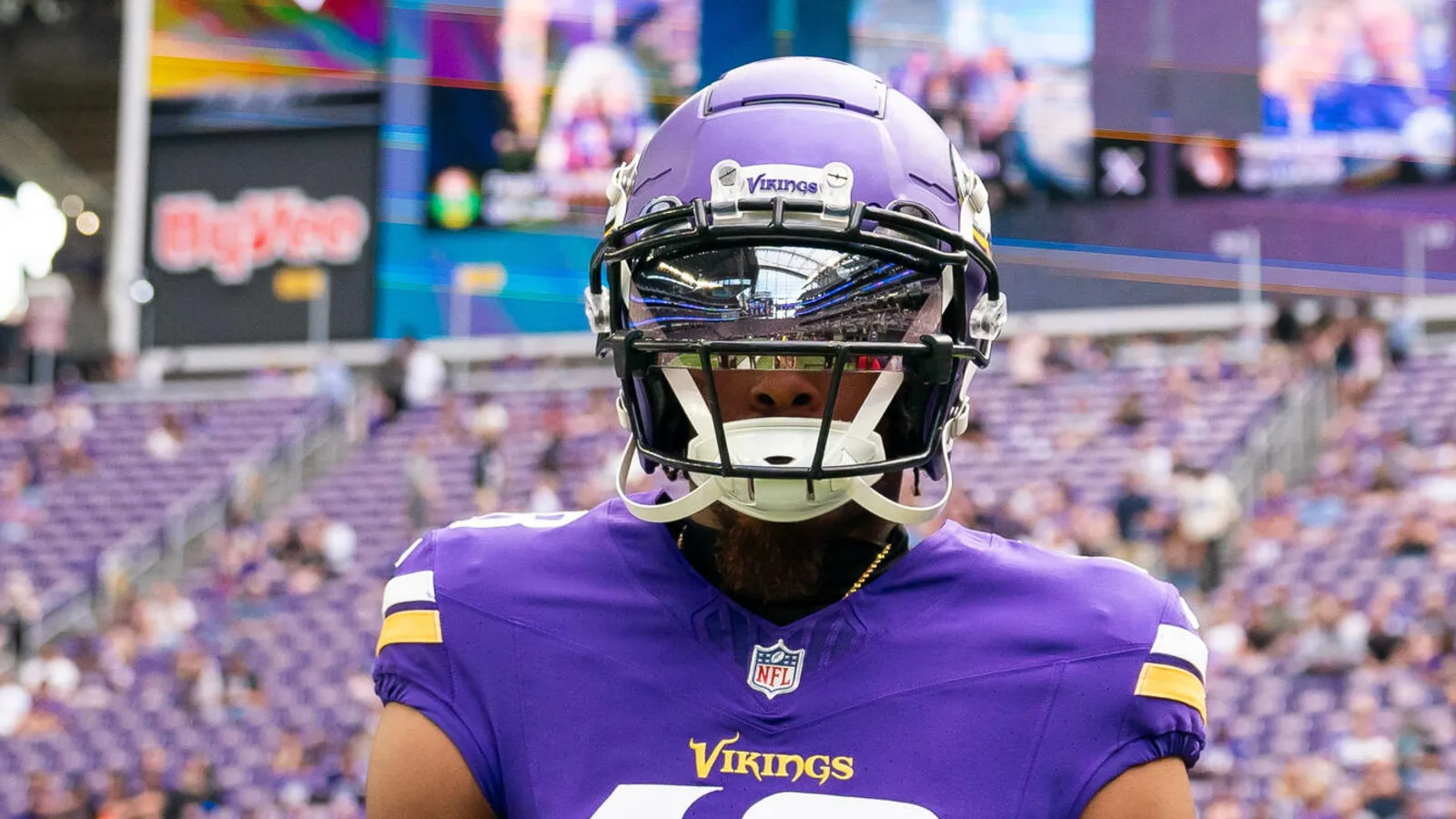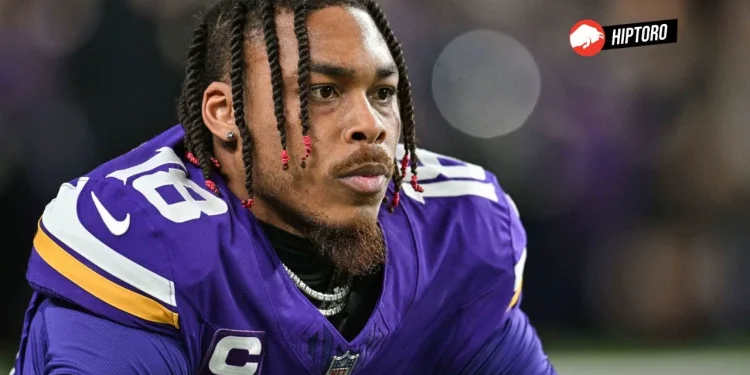In the high-stakes world of NFL contracts, few stories have captivated the attention of fans and analysts quite like the ongoing saga of Justin Jefferson. As one of the premier talents in the league, the question of his future compensation is not just a topic of interest—it’s a barometer for the evolving economics of the sport.

What Will the Minnesota Vikings Do?
At the center of the discourse is whether the Minnesota Vikings will secure Jefferson’s talents long-term or be forced into a trade. The narrative surrounding Jefferson’s contract situation was aptly summarized earlier by Marca.com, stating it’s a clear choice for the Vikings: “Either pay him or trade him.”
Posting a Justin Jefferson highlight everyday until he gets extended @JJettas2
Day Forty-Eight: pic.twitter.com/xI69hbC2CQ
— ≋𝘿≋ (@VikingsDynasty) April 22, 2024
The 24-year-old wide receiver, currently on a fifth-year option worth $19.743 million, is poised for a significant pay raise. The ongoing negotiations aren’t just about numbers; they symbolize his value and contribution to the team. As the General Manager Kwesi Adofo-Mensah pointed out during the Scouting Combine, “We believe he’s the best wide receiver in the league and should be compensated as such.”
Deciphering Contract Value For Justin Jefferson
Historically, the contracts of NFL receivers have been a complex web of numbers, often designed to inflate perceived value. While no receiver is pocketing $30 million annually from these contracts, Jefferson’s next deal is expected to set new benchmarks.
Comparisons are being drawn with Nick Bosa, the highest-paid non-quarterback whose recent contract with the 49ers averages $34 million annually in new money. This sets a relevant precedent for Jefferson, who is argued to have an equivalent if not greater impact on his team’s success.

The real intrigue lies in the structure of Jefferson’s potential deal. Will it be front-loaded to grant the Vikings cap flexibility in later years, or back-loaded to provide immediate financial relief? Alternatively, a shorter, three-year extension could be on the table, allowing Jefferson a sooner re-entry into free agency under more favorable conditions.
Is A Groundbreaking Deal On The Horizon?
Given the surge in the salary cap to $255.4 million for 2024, the stage is set for Jefferson to possibly command around $34 million annually in fresh funds, matching Bosa’s earnings. A proposal that seems fair in this inflated market would be a four-year deal, potentially worth $121.743 million, positioning him at $30.43 million annually at the time of signing—a stark increase and a new zenith for receiver contracts.
Such a contract would not only reflect Jefferson’s stature as a transcendent talent, comparable to the best in any position outside the quarterbacks, but also reset the market parameters for receivers.
A Ticking Clock
The Vikings face a critical decision that could shape their franchise for years to come. The sentiment around the league, as voiced by SKY Sports and others, suggests that the Vikings should cease any gamesmanship and finalize a deal. The urgency is palpable, with speculation that Jefferson could be donning a different jersey soon if the Vikings don’t act swiftly.
As this contract saga unfolds, it remains more than just a negotiation—it’s a pivotal moment that could redefine the financial landscape of the NFL, particularly for the most talented non-quarterbacks in the league.










